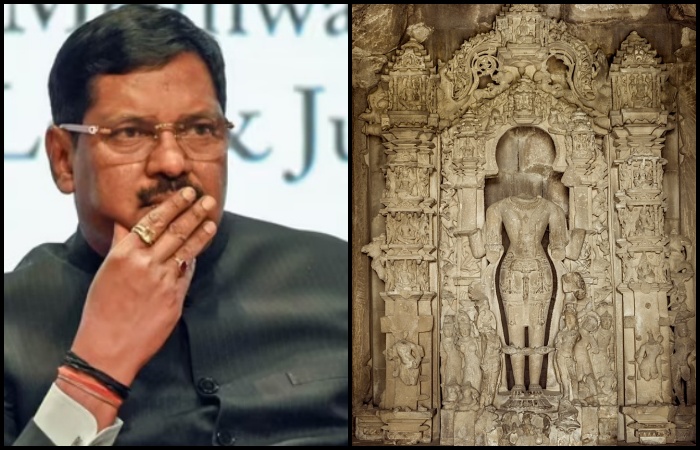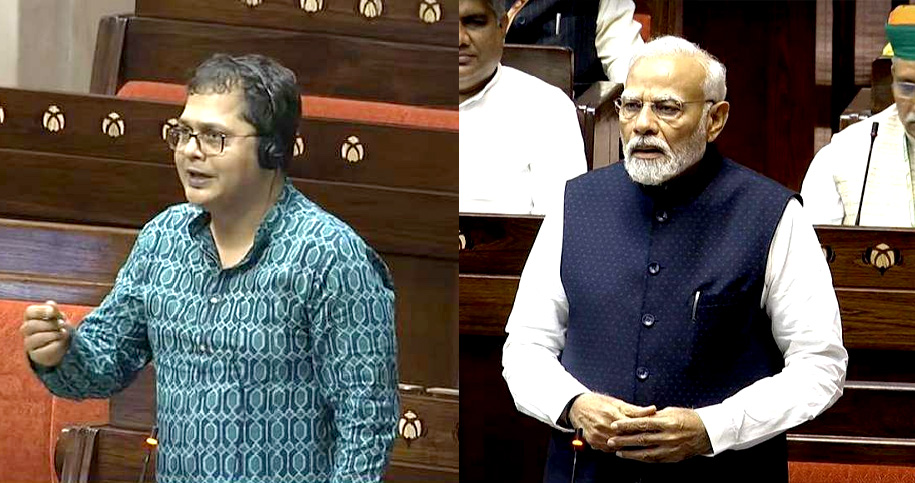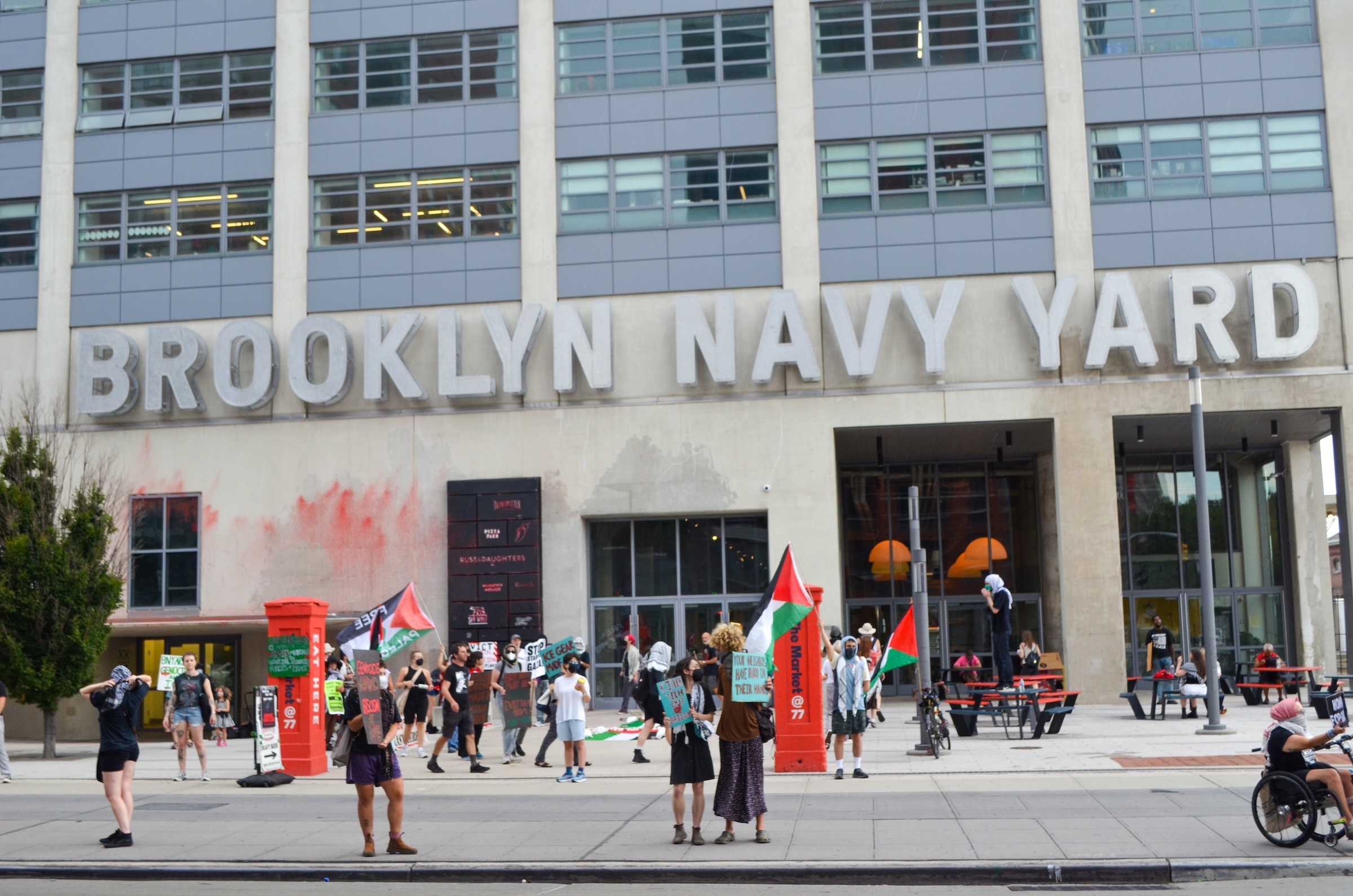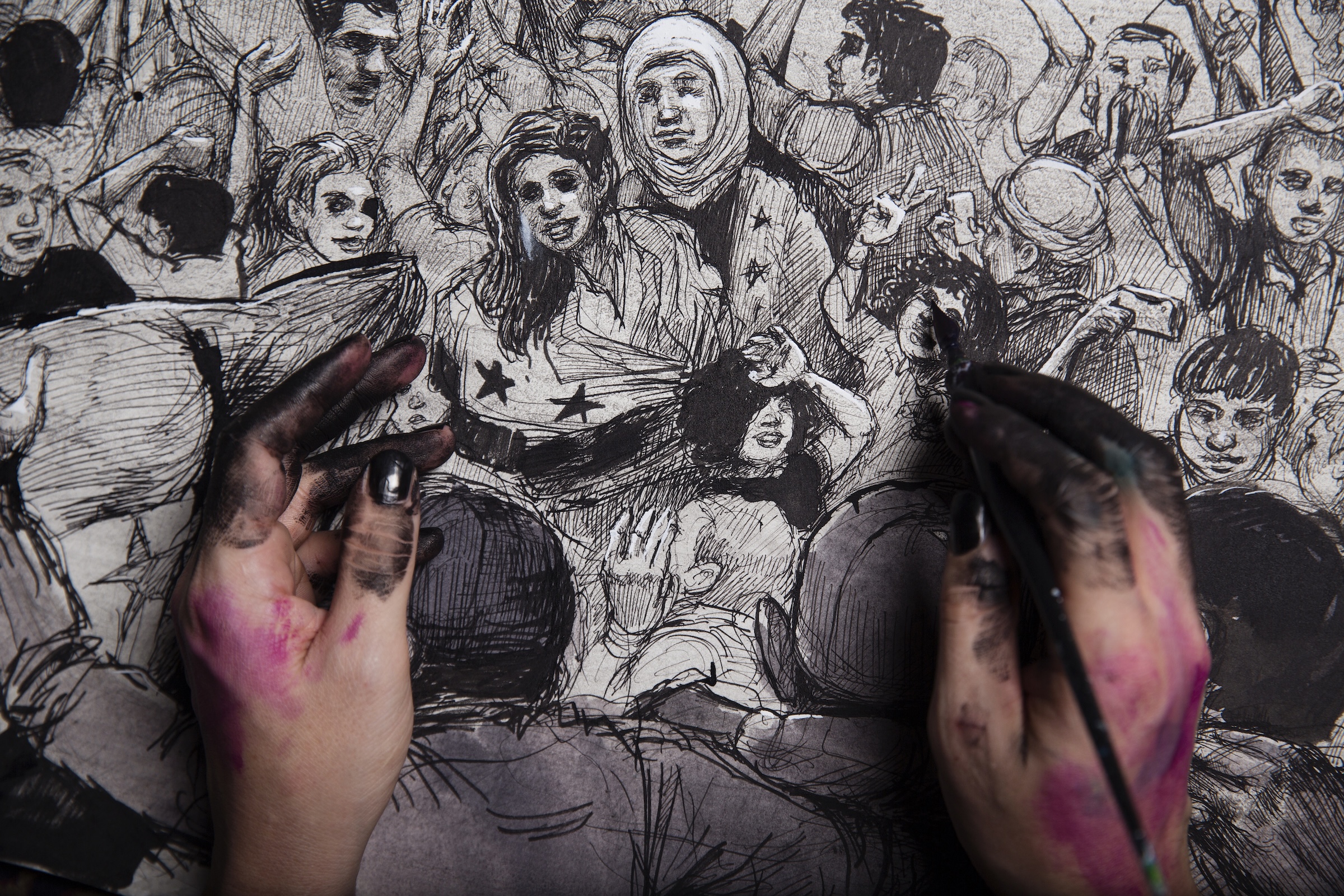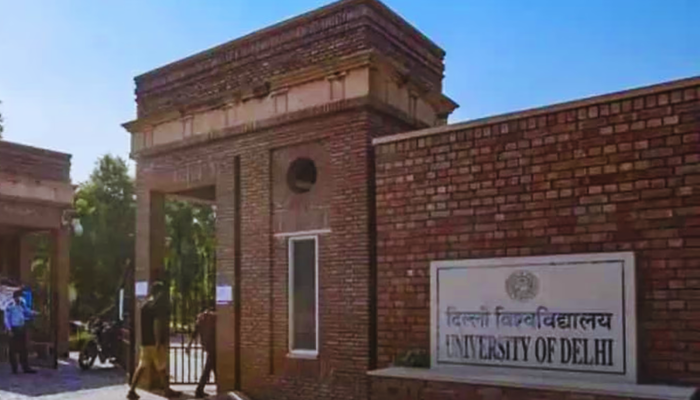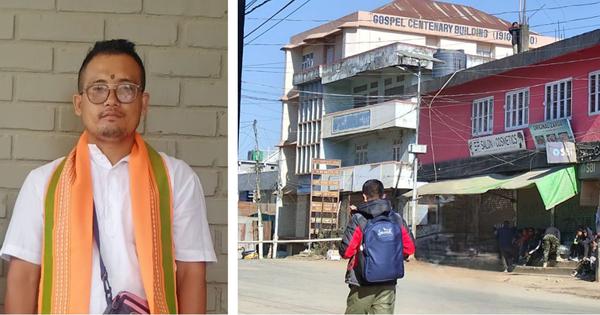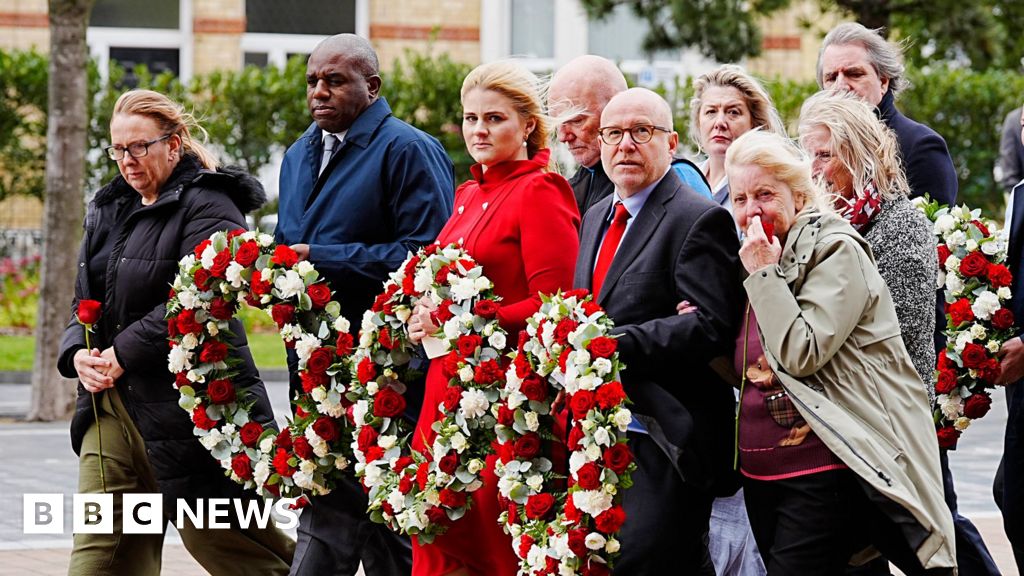Punjab’s ‘backbone of the economy’ faces exodus: Vigilantes and Panchayats rally against migrant workers after 5-year-old boy’s murder in Hoshiarpur – here is what you need to know
After a 5-year-old boy’s murder in Hoshiarpur allegedly by a migrant worker, Punjab’s panchayats and vigilantes have moved against migrant labourers, demanding their removal from the state. Seeing the severe backlash, industry leaders have written to the Chief Minister of the state, calling the migrant workers the ‘backbone of the economy’. They have warned that the state cannot afford an exodus during paddy season. In over a week, while Punjab faces the aftermath of massive floods ruining fields across 4 lakh acres, this negative sentiment against migrant workers has sprung up once again. This is not the first time Punjabis have demanded the removal of migrant workers from Uttar Pradesh and Bihar from the state. Such demands and resolutions have been passed by panchayats multiple times following incidents where migrant workers were involved in criminal activity. The big picture – why this story matters now The gruesome murder of a 5-year-old boy in Hoshiarpur has triggered widespread outrage and a wave of hostility against migrant workers in Punjab, especially those from Uttar Pradesh and Bihar. Panchayat resolutions, vigilante warnings and anti-migrant rhetoric have created an atmosphere of fear in Punjab, just as the paddy procurement season peaks. Industry associations and traders insist that Punjab’s economy cannot function without migrants, who dominate both agricultural labour and industrial work. They argue that while the crime must be punished, blanket blame will harm businesses, farming and social stability. What happened in Hoshiarpur – the timeline so far On 9th September, 5-year-old boy, Harveer alias Billa, was abducted from outside his house in New Deep Nagar locality of Hoshiarpur. Police were informed by the family members after they could not spot the child. Upon investigating the CCTV footage, the police found that the boy was taken away on a scooter. Police traced the vehicle and arrested a migrant labourer identified as Manke Yadav from Uttar Pradesh. Yadav was living in the Subzi Mandi area in Hoshiarpur. According to Senior Superintendent of Police, Sandeep Kumar Malik, Yadav was intoxicated at the time of the arrest. During questioning, he confessed to kidnapping, sodomising and killing the child. The boy’s body was recovered by the police the next morning at a cremation ground in Pur Hiran. A case was registered against Yadav and the police promised strict action in the matter. The brutal crime sent shockwaves through the community. Images of the grieving family were circulated widely on social media, which intensified public anger. Politicians visited the family and demanded swift justice. Police emphasised that there were previous cases against the accused which were also being examined. The brutality of the incident provided fertile ground for demands that migrants be strictly monitored, even as officials, including the Chief Minister of the state, Bhagwant Mann, cautioned against generalising an entire workforce on the basis of one crime. From grief to glare – how villages responded In the days following the incident, over 25 panchayats in Hoshiarpur and adjoining districts passed resolutions against migrant workers. The directives varied but had a common theme, which was restricting residence rights for those without Punjab-issued documents. Some villages ordered that migrants without valid papers must leave the state within a week. There have been reports of migrant workers leaving the state in large numbers fearing the backlash. Notably, some villages have said that migrant workers may be allowed to stay in tubewell rooms in the fields but not in residential parts of the village. Panchayats also resolved to deny Aadhaar or voter cards to migrants, to ban house rentals, and in some cases even to bar marriages between locals and outsiders. In Bathinda, panchayats like Gehari Bhagi went further, ruling that migrants cannot buy property or register documents with local addresses. Farmers employing migrants were told to take full responsibility for them. According to media reports, legal experts have warned that such resolutions are unconstitutional, given the fundamental rights of Indian citizens to live and work anywhere in the country. However, the pressure from panchayats has created a climate of anxiety among thousands of workers who power Punjab’s fields, mandis and factories. ‘Pravasi bhagao, Punjab bachao’ videos and past campaigns While these resolutions came as formal decisions, vigilante threats have also surfaced in Ludhiana and Bathinda. There are videos on social media where vigilantes are seen pushing for the mass exodus of migrant workers. Street vendors from other states are being warned to pack up and leave. In Bhai Randhir Singh Nagar of Ludhiana, police had to intervene to prevent escalation in one such incident. On social media, videos bearing the slogan “pravasi bhagao, Punjab bachao” have gained traction.



After a 5-year-old boy’s murder in Hoshiarpur allegedly by a migrant worker, Punjab’s panchayats and vigilantes have moved against migrant labourers, demanding their removal from the state. Seeing the severe backlash, industry leaders have written to the Chief Minister of the state, calling the migrant workers the ‘backbone of the economy’. They have warned that the state cannot afford an exodus during paddy season.
In over a week, while Punjab faces the aftermath of massive floods ruining fields across 4 lakh acres, this negative sentiment against migrant workers has sprung up once again. This is not the first time Punjabis have demanded the removal of migrant workers from Uttar Pradesh and Bihar from the state. Such demands and resolutions have been passed by panchayats multiple times following incidents where migrant workers were involved in criminal activity.
The big picture – why this story matters now
The gruesome murder of a 5-year-old boy in Hoshiarpur has triggered widespread outrage and a wave of hostility against migrant workers in Punjab, especially those from Uttar Pradesh and Bihar. Panchayat resolutions, vigilante warnings and anti-migrant rhetoric have created an atmosphere of fear in Punjab, just as the paddy procurement season peaks. Industry associations and traders insist that Punjab’s economy cannot function without migrants, who dominate both agricultural labour and industrial work. They argue that while the crime must be punished, blanket blame will harm businesses, farming and social stability.
What happened in Hoshiarpur – the timeline so far
On 9th September, 5-year-old boy, Harveer alias Billa, was abducted from outside his house in New Deep Nagar locality of Hoshiarpur. Police were informed by the family members after they could not spot the child. Upon investigating the CCTV footage, the police found that the boy was taken away on a scooter. Police traced the vehicle and arrested a migrant labourer identified as Manke Yadav from Uttar Pradesh. Yadav was living in the Subzi Mandi area in Hoshiarpur.
According to Senior Superintendent of Police, Sandeep Kumar Malik, Yadav was intoxicated at the time of the arrest. During questioning, he confessed to kidnapping, sodomising and killing the child. The boy’s body was recovered by the police the next morning at a cremation ground in Pur Hiran. A case was registered against Yadav and the police promised strict action in the matter.
The brutal crime sent shockwaves through the community. Images of the grieving family were circulated widely on social media, which intensified public anger. Politicians visited the family and demanded swift justice. Police emphasised that there were previous cases against the accused which were also being examined. The brutality of the incident provided fertile ground for demands that migrants be strictly monitored, even as officials, including the Chief Minister of the state, Bhagwant Mann, cautioned against generalising an entire workforce on the basis of one crime.
From grief to glare – how villages responded
In the days following the incident, over 25 panchayats in Hoshiarpur and adjoining districts passed resolutions against migrant workers. The directives varied but had a common theme, which was restricting residence rights for those without Punjab-issued documents. Some villages ordered that migrants without valid papers must leave the state within a week. There have been reports of migrant workers leaving the state in large numbers fearing the backlash.
Notably, some villages have said that migrant workers may be allowed to stay in tubewell rooms in the fields but not in residential parts of the village. Panchayats also resolved to deny Aadhaar or voter cards to migrants, to ban house rentals, and in some cases even to bar marriages between locals and outsiders.
In Bathinda, panchayats like Gehari Bhagi went further, ruling that migrants cannot buy property or register documents with local addresses. Farmers employing migrants were told to take full responsibility for them.
According to media reports, legal experts have warned that such resolutions are unconstitutional, given the fundamental rights of Indian citizens to live and work anywhere in the country. However, the pressure from panchayats has created a climate of anxiety among thousands of workers who power Punjab’s fields, mandis and factories.
‘Pravasi bhagao, Punjab bachao’ videos and past campaigns
While these resolutions came as formal decisions, vigilante threats have also surfaced in Ludhiana and Bathinda. There are videos on social media where vigilantes are seen pushing for the mass exodus of migrant workers. Street vendors from other states are being warned to pack up and leave. In Bhai Randhir Singh Nagar of Ludhiana, police had to intervene to prevent escalation in one such incident.
On social media, videos bearing the slogan “pravasi bhagao, Punjab bachao” have gained traction. These clips, often shared by self-styled vigilantes, demand that migrants leave villages and highlight grievances ranging from cultural differences to alleged law-and-order problems.
Reportedly, Amritpal Singh Mehron, the prime accused in the murder of digital content creator Kanchan Kumari alias Kamal Kaur Bhabhi, has jumped into the controversy. He has reportedly contacted the victim’s father. In a video on Facebook, he was heard offering the victim’s father help in case he wanted “out of court” justice. The authenticity of the video could not be verified. Mehron had fled the country after murdering Kumari.
Such rhetoric carries echoes of earlier “outsider” campaigns seen in states like Maharashtra, and even Punjab itself, where past panchayats in Fatehgarh Sahib and SAS Nagar issued similar restrictions last year. The pattern is familiar. Anger after a local incident spills into broad-brush hostility against migrants, but the economic fallout eventually forces reconsideration. The present cycle risks repeating that history, with Punjab’s agriculture and industry already showing signs of strain amid devastating floods.
Are these resolutions lawful?
While grief over the Hoshiarpur case is understandable, experts say the diktats from panchayats risk breaching the Constitution. India is a federal union where citizens can reside and seek work across states. Any blanket move to deny Aadhaar, voter registration, or accommodation based on origin is unlawful.
This has been echoed by CM Mann. While he condemned the murder in a statement, Mann cautioned that discrimination cannot be tolerated. He said, “Punjabis run businesses in Raipur and control much of Kolkata’s transport sector. Tomorrow, they too could face retaliation. Such discrimination cannot be accepted.”
Industry alarm – ‘backbone of economy’
Industry bodies in Punjab have also raised an urgent red flag. Ludhiana-based industrialist and president of the World MSME Forum, Badish Jindal, recently wrote to the CM stressing that migrant workers are the “backbone of Punjab’s industries, farms, shops and households”.
In his letter, Jindal, who recently joined Aam Aadmi Party, pointed out that 80% of unskilled labour in Punjab industries are migrants. Around 8 lakh migrant workers work in Ludhiana alone, the industry hub of the state. Migrants also undertake the bulk of sowing and harvesting in agriculture.
Jindal warned that if hostility drives them out, Punjab’s industries and supply chains will collapse, harming not just state businesses but also exports routed through other states. Calling the hostility “a conspiracy to destroy Punjab,” he urged the government to discourage anti-migrant rhetoric and ensure worker safety.
On the ground – what workers and traders say
The fear has started to spread in mandis and fields across the state. Pappu Kumar Yadav, who hails from Bihar, has been working in Punjab for 15 years. Speaking to a media outlet, he said, “We earn four times more here than back home, but after the Hoshiarpur murder, hatred against migrants has spread. We live in fear.”
However, not all voices are hostile. Commission agents and industrialists insist migrants are integral. Traders at Khanna and Bhagtanwala grain markets admitted a labour shortage is already hurting operations. Some workers are considering early returns, which could stall procurement.
Ludhiana industrialist Gurmeet Singh Kular noted that many migrant families have been in Punjab for generations. TR Mishra, who migrated from Uttar Pradesh in the 1960s and now runs a factory, argued while speaking to media, “The fight should be against crime, not against people of one or two states.”
Punjab Nirman Mazdoor Union state president Ganga Prasad said in a statement while guilty must be punished, other migrants should not be targeted.
Political reactions across parties
The tragedy has also sharpened political debate on the matter. CM Mann has consistently warned against targeting migrants. Congress MLA Sukhpal Singh Khaira condemned the murder but linked it to what he described as unchecked inflow of outsiders. Khaira demanded a law similar to Himachal Pradesh and Uttarakhand that restrict land ownership and jobs to locals.
Shiromani Akali Dal leaders, meanwhile, called for stricter monitoring of migrants and blamed the AAP government for law-and-order lapses. Shiromani Akali Dal leader Daljit Singh Cheema demanded strict action against the accused. AAP MP Raj Kumar Chabbewal visited the bereaved family, offering financial assistance and solidarity. Political voices thus reflect a divide. Justice for the victim is universally sought, but prescriptions for migrants’ future diverge sharply.
Backbone in numbers – why migrants matter to Punjab
The scale of migrant involvement in Punjab’s economy is undeniable. It cannot be overlooked. According to reports, there are around 18 lakh migrant workers in the state. They form an overwhelming majority of unskilled labour in both industry and agriculture. In Ludhiana’s industrial belt, around eight lakh migrants power factories that produce textiles, bicycles and machine parts. In agriculture, paddy transplantation, harvesting and mandi operations depend almost entirely on workers from Uttar Pradesh and Bihar.
Commission agents estimate that without migrants, procurement centres would collapse within days. Even Punjab’s household sector relies on them as domestic workers and street vendors. The slogan “backbone of economy” is not just rhetoric but a reflection of dependence.
What to watch next
As the Hoshiarpur case is still under investigation, there is a more pressing challenge, which is how the state is going to manage the fallout. Will the government intervene to nullify panchayat resolutions and reassure workers? Will industry bodies’ calls for protection translate into concrete steps?
In the coming weeks, especially during the procurement season and sowing season, it will be crucial how Punjab balances justice for the victim with stability for its economy. If migrants begin to leave in large numbers, the ripple effects will be immediate and severe.
Conclusion – punish the guilty, protect livelihoods
The murder of the 5-year-old boy has rightly caused anguish and anger among the people of Punjab. However, that should not translate into backlash against all migrants, which will compound tragedy with disruption. Industry leaders, farmers and traders stress that migrants are not outsiders but essential contributors to the state’s daily functioning. The Constitution guarantees their right to live and work in Punjab, and officials must ensure that this right is upheld.
The guilty must face the law. He must be punished swiftly and decisively. However, millions of innocent workers who keep Punjab’s wheels turning should not be made to suffer for one man’s crime. The state now faces the test of delivering both justice and fairness.





